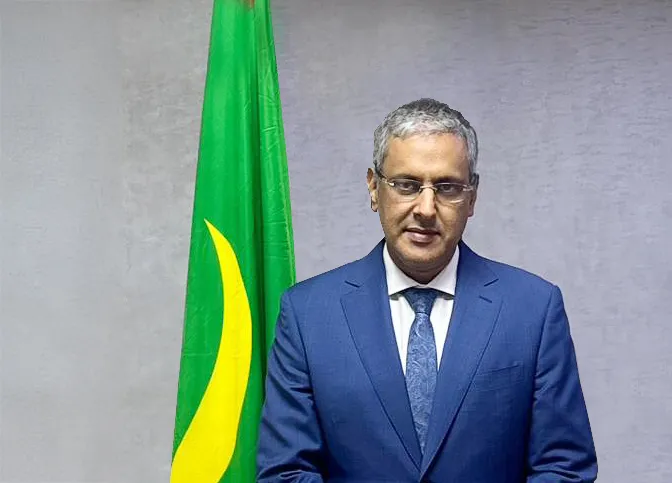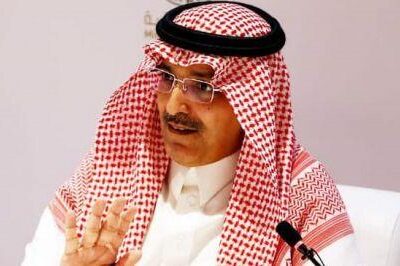
This article is sponsored by Ministry of Petroleum, Energy and Mines of the Islamic Republic of Mauritania
What qualities are you looking for in a new strategic partner to join in the development of BirAllah?
The BirAllah gas field is considered a world class field in terms of gas volume and quality, with a low carbon dioxide content. Located in the Mauritanian coastal basin 60 km north of the Grand Tortue Ahmeyim (GTA) gas field, BirAllah is therefore an exclusively Mauritanian field. Discovered in 2015 by Kosmos Energy as part of the exploration and production contract for Block C8, its reserves are estimated at between 50 and 80 trillion cubic feet of gas.
Although the field contains a large quantity of hydrocarbons, only two exploration wells, Marsouin and Orca, have been drilled, which means that there is still a need to gather more information about the field’s reserves. Detailed technical studies also need to be carried out in order to have a development plan that is both technically and economically appropriate. We favour the option of a win-win development plan, while ensuring excellent profitability for investors and developers.
In October 2022, in line with its strategy to accelerate the exploitation of the discoveries made and to take advantage of the favourable global environment for the development of gas projects, the government began discussions with the block’s historical contractor, BP, to agree on the technical and economic conditions for progressing towards a new contract that would provide greater visibility, particularly as regards the expected date of the final investment decision.
The study of the field development plan showed the possibility of using the port of the coastal town of N’Diago as a base for gas liquefaction, storage and export facilities during the first six months of the contract to be undertaken. However, the operator was not prepared to proceed with the project and sign the contract, which would have committed it to finalising the detailed engineering studies and making the final investment decision in the second half of 2025. The operator requested an extension of the contract for a further four years, but the conditions were not met, resulting in the contract expiring in 2024. I can confirm the good relationship we have with BP, which is also the main developer of the GTA gas field and which is operating in Mauritania as part of the development of an ambitious green hydrogen project.
We are currently stepping up our efforts to promote the BirAllah field by initiating contacts with world-class companies with the technical and financial capacity to propose a development plan and negotiate new contracts.
Mauritania has introduced significant reforms to create a more attractive investment climate in the energy sector. Could you highlight some of the recent changes in the investment code and how they aim to boost foreign investment?
Mauritania has reformed its legal investment framework to attract foreign capital into the energy sector by simplifying regulatory processes, offering tax incentives and strengthening legal protections for foreign investors. The new Electricity Code paves the way for both domestic and international investors to access the energy market, with protective measures designed to help project developers.
The new policies also encourage public-private partnerships (PPPs), particularly in energy and infrastructure, and bring environmental standards into line with international best practice. These reforms aim to position Mauritania as a regional energy hub, particularly in renewable energies and natural gas, by creating a safer and more attractive environment for foreign investors. Mauritania’s energy vision is based on the synergy between the gas, electricity and mining sub-sectors. In fact, Mauritania intends to produce electricity on a massive scale from gas in order to supply the mining poles with reliable, low-cost electricity.
Mauritania has maintained political and security stability, which is crucial for attracting long-term investment. How does the government ensure that this stability continues as energy projects expand?
We all know that we live in a world marked by multidimensional challenges, particularly of a security and energy nature, which we are all confronted with. Despite this, Mauritania continues to be a haven of peace in the sub-Saharan region. Mauritania also has stable democratic institutions and an exemplary political stability. This is an asset that we hold dear, because it is the guarantee of our progress and our sovereignty. As a future regional energy hub with a huge potential in renewable energies and as a privileged partner of developers of energy projects, particularly hydrogen, we have succeeded in creating a stable environment that can guarantee future energy expansion.
With the first cargo from the GTA project expected in the first quarter of 2025, what role will this and other gas projects play in shaping Mauritania’s economic future?
First of all, this project is of strategic importance for Mauritania and Senegal. It has faced major challenges throughout its development. The GTA project, which is due to produce its first gas in early 2025, should play a transformative role inMauritania’s economy. First and foremost, it will generate revenue, create added value and lead to the emergence of a national oil and gas industry.
The GTA project and other similar gas projects are expected to generate substantial revenues, providing Mauritania with a stable financial base. These revenues will be essential for financing social programmes, infrastructure and economic diversification efforts.
The project’s spin-offs will also be used to create jobs and develop skills. With increased domestic gas production, Mauritania will improve local energy supplies, stimulating industrialisation and local processing, particularly in sectors such as mining and steel manufacturing. Better access to energy will support broader economic growth and reduce dependence on expensive and unreliable energy. GTA’s entry into production will strengthen Mauritania’s position as a regional energy hub.
The first flaring of gas at the Grand Tortue Ahmeyim (GTA) project is an important milestone. Can you explain its significance for the overall project and Mauritania’s LNG ambitions?
To get to this point, we had to overcome a lot of financial, technological, environmental and governance challenges. Today, the parties involved in the project are delighted with the success they have achieved: all the technological components of the project are in place, the subsea systems are connected, and we can say with confidence that all the project’s construction efforts will soon be crowned by the delivery of the first commercial cargo. This signifies many things: firstly, the successful completion of a gas project of this scale, and secondly, it demonstrates the strong ties between Mauritania and Senegal, two countries linked by strong bonds of friendship, common interest and good neighbourliness.
The recently passed green hydrogen code is expected to be a game changer for Mauritania. How do you see this move boosting investment in green hydrogen and what immediate impacts do you expect?
Mauritania is ambitiously working to harness its vast energy resources, including renewables and, crucially, hydrogen, which promises to be a game-changer. Renewable energy offers our country an unprecedented opportunity.
We are uniquely positioned, consistently ranked by leading international consulting firms among the top nations for renewable energy potential due to our abundant sunshine, strong winds, vast land areas, and access to water. Additionally, our proximity to key energy markets such as the European Union makes Mauritania a prime location for energy development. Our energy vision aims to make Mauritania a giant platform for exporting clean energy to Europe and others.
What steps is the government taking to lower the cost of electricity production across the country?
Having adopted the new Electricity Code, Mauritania is now implementing an ambitious vision for large-scale power generation. Thanks to the gas produced by GTA, we plan to build several new gas-fired power plants using gas from GTA and the Banda gas field.
It’s a vast Gas to Power plan to produce reliable, low-cost electricity.
How important is this transition for the country’s industrial strategy?
The national focus is now on local transformation. While this was not possible in the past due to a lack of energy, it is now possible thanks to a network of energy infrastructure, notably high-voltage lines and abundant energy. Hydrogen represents a real opportunity to produce green steel and green industry.
What do you see as the main challenges facing Mauritania’s energy sector over the next decade?
Thanks to cooperation with our partners and financial institutions, Mauritania has carried out a study to assess the infrastructure gap required for the great change to come, and we are determined to fill this gap, particularly in the areas of roads, ports and other facilities linked to the gas and green energy industries.
Looking ahead 20 years, what is your long-term vision for Mauritania’s energy sector, particularly in balancing hydrocarbons and renewable energy?
By 2030, we aim to achieve universal access to energy— an energy that is sustainable, reliable and affordable. At the same time we are attracting international investors to build the massive infrastructure needed to bring these projects to life, including new roads, ports, electrical grids and other critical facilities, which will require significant capital investment. Ultimately, our fundamental goal is to position Mauritania as the future energy hub of the region.







Comments